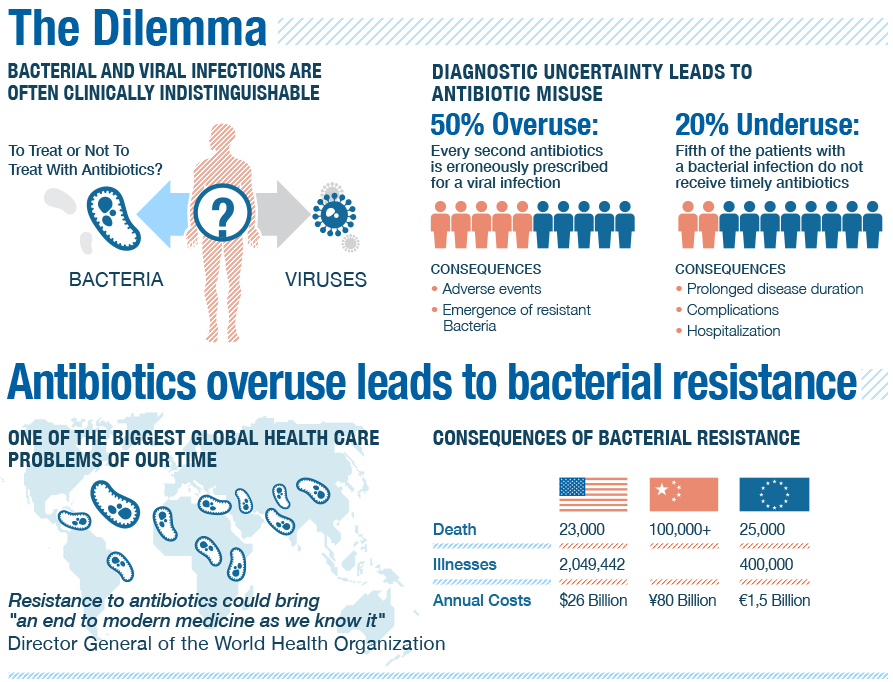The effect of all antibiotics is aimed at inhibiting the growth of pathogens and destroying them. However, despite the positive therapeutic effect, antibiotics may cause side effects that manifest differently in every individual.
The reasons that contribute to the antibiotics side effects vary. Undesirable effects may be caused by the duration of the antibiotics treatment, and individual intolerance, and even genetic heritage.
Therefore, before you buy an antibiotic, you should carefully read its instructions and, in particular, the section that describes the possible antibiotic side effects and contraindications.
After learning about the possible adverse effects of the antibiotic, the patient will be able to pay attention to them right on time and to take measures for preventing their development.
It is good, if the adverse reactions disappear after the abolition of the antibiotic. Worst case is when the antibiotic had already impaired the balance of normal intestinal flora. One of the most common side effects of antibiotics is the reactions from the gastrointestinal tract and urogenital system.
The majority of adverse gastrointestinal reactions are observed during the long-term use of antibiotics. These include intestinal dysbiosis, the symptoms of which are change in stool consistency (diarrhea or constipation), and bloating.
The risk of intestinal dysbiosis and other side effects increases with the use of strong antibiotics, such as cephalexin, ciprofloxacin, tetracycline, which are used for the treatment of UTI and respiratory infections.
Probiotics are recommended for the elimination of the intestinal bacteria overgrowth and restoring the natural intestinal flora during an antibiotic treatment or after its termination.
Probiotics are live bacteria that restore the intestinal microflora balance, which can be purchased without a prescription and taken in 2-weeks courses.
Along with gastrointestinal side effects, patients may often experience allergic reactions, when using antibiotics for the treatment of UTI (Cipro, Amoxil). The most dangerous of all antibiotics side effects is the drug allergy (e.g. anaphylactic shock).
Symptoms of the anaphylactic shock are developing very rapidly, and in a very short time the patient may start feeling severe dizziness, nausea, numbness of the tongue and lips, difficulty in breathing. Calling an emergency and urgent hospitalization is required in every case of anaphylactic shock.
One of the most safe and effective are the new generation antibiotics (azithromycin, ceftobiprole), because they have fewer side effects.
Thus, to reduce the risk of adverse reactions, it is appropriate to buy and use the new generation antibiotics.
It must be noted that the price of the new generation antibiotics is several times higher than the cost of previous generation antibiotics. However, according to clinical studies, the new generation of antibiotics is better tolerated by patients and is more effective in fighting the infections.
Allergic reactions may have a milder character. These reactions quite often manifest as rash, urticaria, dermatitis or edema. In most cases, these side effects of the antibiotic gradually disappear by themselves.
Antibiotics often cause such side effect, as thrush. This form of fungal disease may manifest in the background of dysbiosis. Therefore, anti-fungal drugs are recommended for use in parallel with antibiotics. They will support the intestinal microflora in a normal condition.
Patients should take antibiotics correctly to avoid the negative effects of antibiotics, or at least to reduce the risk of their development. When buying an antibiotic, you must remember that it is only effective for the treatment of bacterial infections, and is completely useless against viral infections.
When buying an antibiotic, you should carefully read its instructions and familiarize yourself with the indications for use in the smallest detail. It is also useful to know, what side effects the antibiotic may cause, to prevent their development and complications.
When using an antibiotic, observe its instructions, do not exceed the established dose and do not interrupt the treatment course for no reason. Compliance with all of the recommendations will contribute to a quick recovery from the infection and prevention of serious antibiotics side effects.





